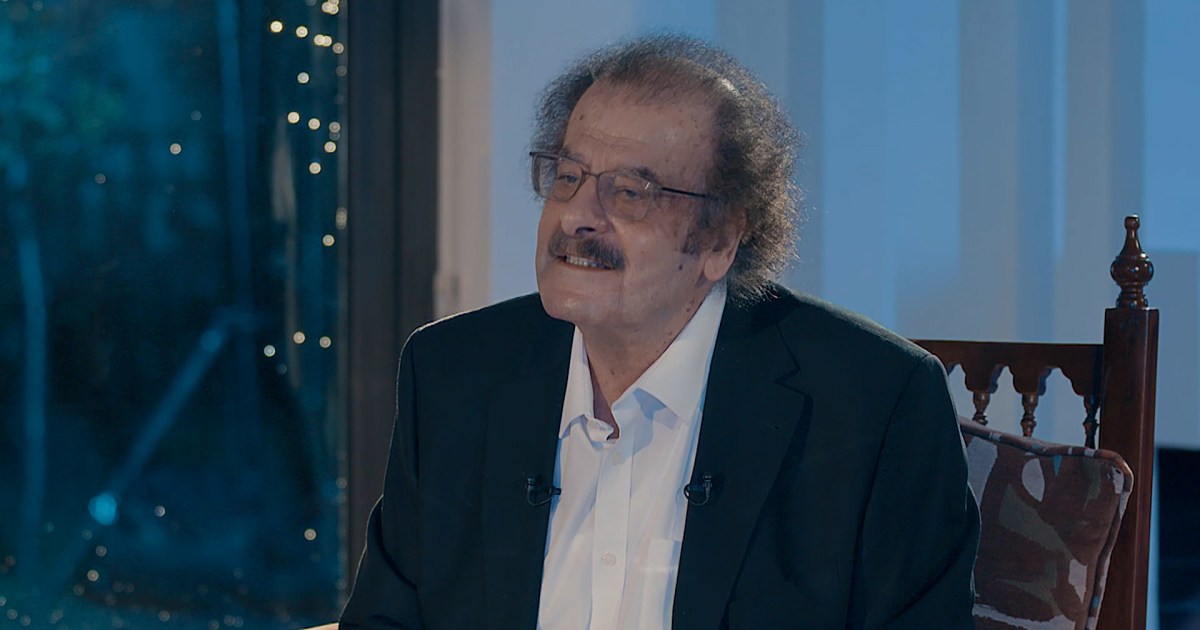Walid Seif tells about the Palestinian Nakba in 1948, and about the Tulkarm camp, which was built a few meters from his house, which is located on a hill in the city, and how the suffering of the Palestinian people contributed to the formation of his literary personality, and how he rejected the inferior view of the camp and its residents, pointing to his apology to all the camp residents. In his book on behalf of others.
Saif also considered the preoccupation of Arab regimes and peoples with the Palestinian issue and not placing it as a major issue with apostasy, after it was a central issue in the Arab and Islamic worlds, and the talk was about the relationship between the national goal of liberation and the civilized renaissance in the Arab world, as two goals that are closely related to existence and achievement.
He also rejected what some are trying to drop from the "sanctity" of the Palestinian people, stressing that, like the rest of the Arab peoples, it has good and bad.
He stressed that Israel's survival is linked to Arab backwardness, and education and awareness are a condition for the liberation of Palestine, pointing out that the Palestinian resistance believes that it is unable to liberate Palestine without Arab awareness.
He believed that any resistance movement working to liberate its country from any invading force would operate outside the official system, calling on the Arab peoples to rally around the resistance in order to work for the liberation of the Palestinian territories.
Saif confirms that the camp was a symbol of the Palestinian resistance, and it produced revolutionary, national and cultural leaders, pointing out that what he experienced in his father's shop near the camp - from the talk of its residents about the memories of the country before the Nakba - was the first building block in what he wrote later while composing the Palestinian alienation, and his transfer of facts that occurred dramatically in the camps.
And about his love for his city Tulkarm, he said that he did not realize the extent of his love for his small city until after he toured the major cities in the world, and he would soon forget the details of these cities, and nothing remains in his memory except his small city, stressing that he cannot sleep often without wandering in his imagination .
intellectual orientation
Regarding his ideological orientation, Seif said that he is an independent person who supports the resistance for the liberation of the Palestinian territories, despite his involvement in the Fatah movement for a period of time, noting that his exit from the movement does not mean his exit from the resistance, but rather that his work continues in the Palestine Liberation Organization.
He added that he joined the Sufi movement to answer many of the questions that were on his mind, and he worked to combine philosophical and popular mysticism.
his productions
The Palestinian academic and drama writer talked about his beginnings in the world of drama during his scholarship as a teaching assistant to London and his influence on the British narrative heritage, especially drama, and on television and theatrical works, especially the historical ones, specifying Shakespeare's works, and he also expressed his admiration for the English works that helped him understand the nature of Western peoples.
It is noteworthy that Walid Seif produced many Arab dramas that were widely spread, such as the Palestinian series Al-Taghribah, the Andalus trilogy, Salah El-Din, and Omar Al-Farouq.
He also authored several books such as "The Witnessed Witness", which narrated his autobiography, "The Cordoba Dates", "The Fire and the Phoenix", and "The Bahrain Forum".
Seif was also famous for poetry, and his beginning was from school benches in the tenth grade, and he was tutored by many poets, including Abu Al-Qasim Al-Shabi, Badr Shaker Al-Sayyab, Salah Abdel-Sabour, Ahmed Hijazi, Nazik Al-Malaika, and Abdel-Wahhab Al-Bayati.
He also authored several collections of poetry such as "Poems in the Time of Conquest".
It is noteworthy that Walid Seif was born in Tulkarm, Palestine, in 1948, and lived there for 18 years before moving to the Jordanian capital, Amman, to enroll in university there.

